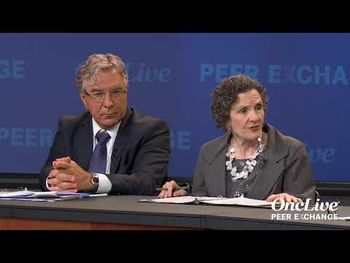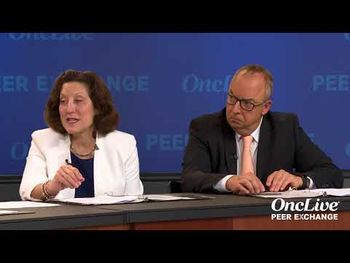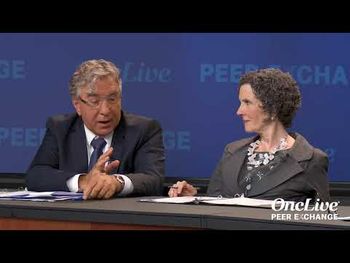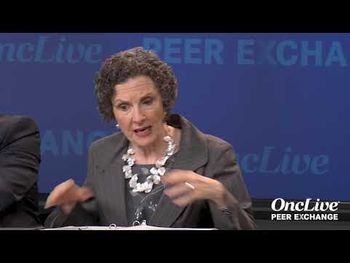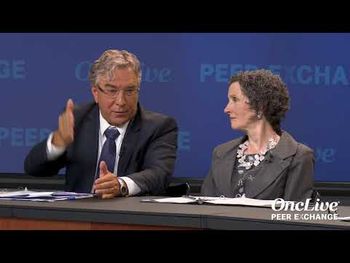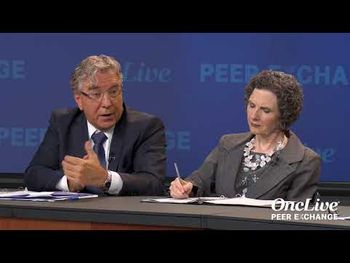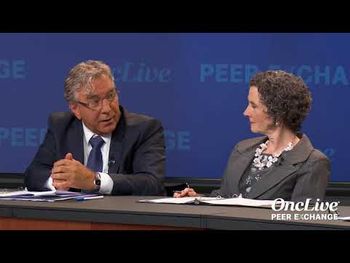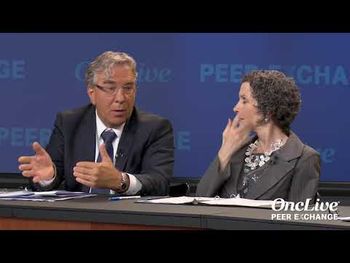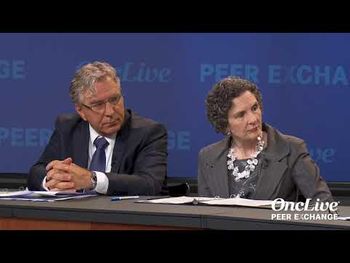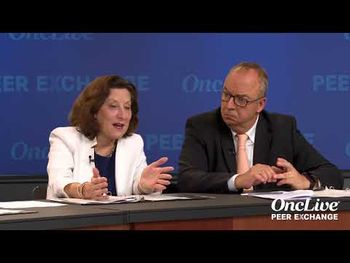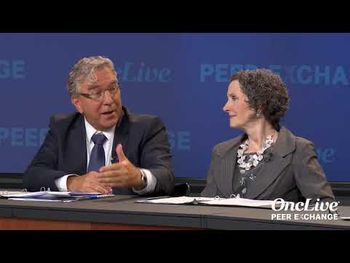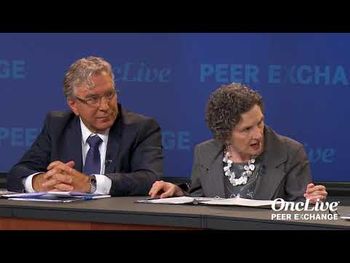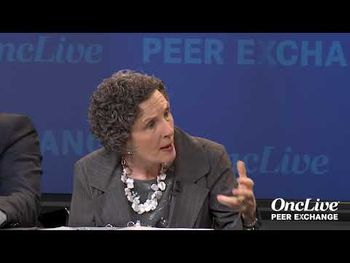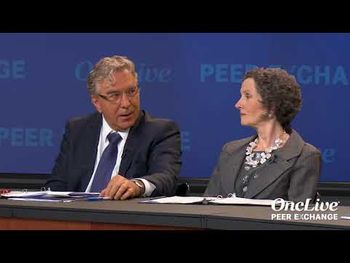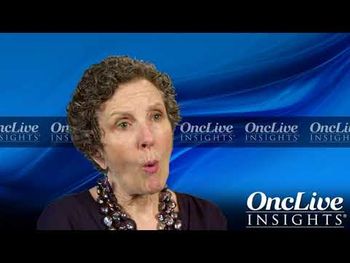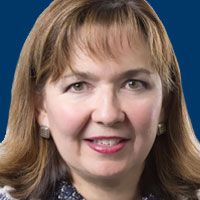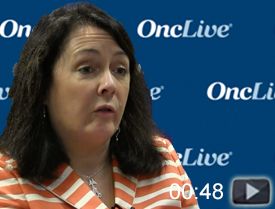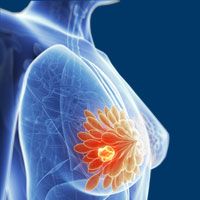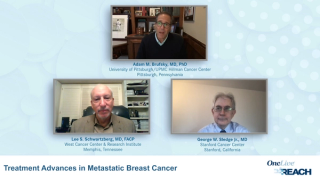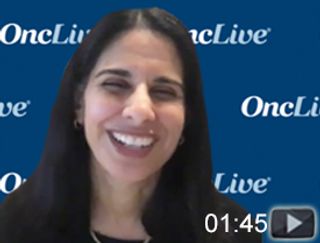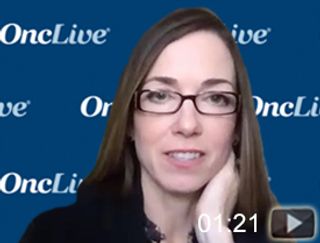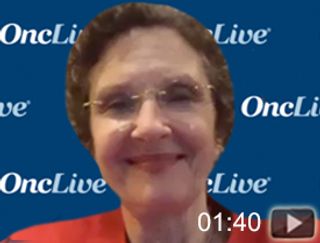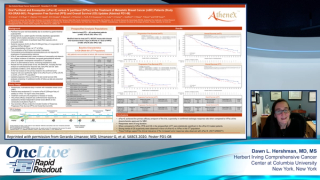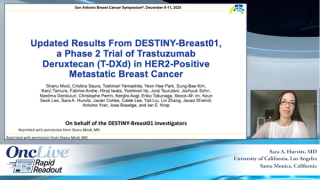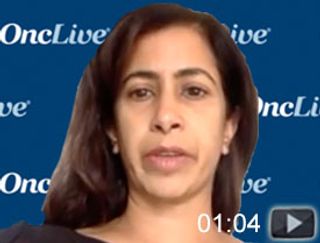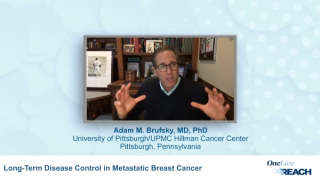
Breast Cancer
Latest News
Latest Videos

CME Content
More News
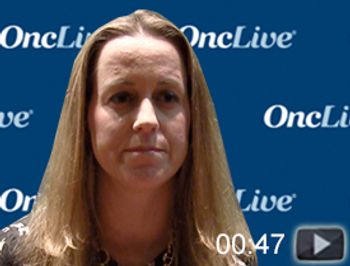
Erika P. Hamilton, MD, director of the Breast and Gynecologic Research Program at Sarah Cannon Research Institute, discusses tucatinib in the treatment of patients with HER2-positive breast cancer.
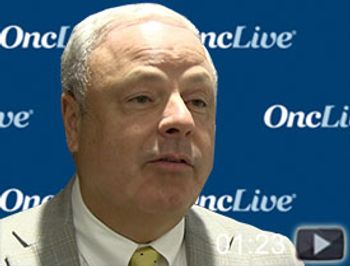
Howard “Skip�” A. Burris, III, MD, chief medical officer, Sarah Cannon Research Institute, and a 2014 Giant of Cancer Care® in Drug Development, discusses the potential of PARP inhibitors in patients with triple negative breast cancer (TNBC).

The FDA has granted a priority review to a supplemental New Drug Application for olaparib (Lynparza) for the treatment of patients with germline BRCA-positive, HER2-negative metastatic breast cancer.
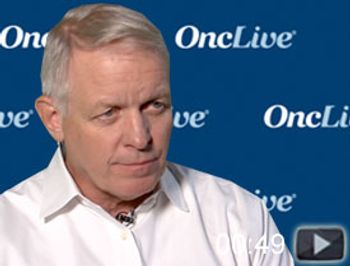
William J. Gradishar, MD, interim chief of Hematology and Oncology in the Department of Medicine, Betsy Bramsen Professorship of Breast Oncology, professor of medicine (hematology and oncology), Feinberg School of Medicine, Northwestern University, discusses dual HER2-targeting in breast cancer.
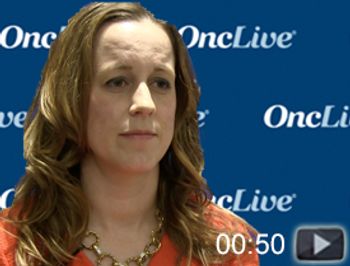
Erika P. Hamilton, MD, director of the Breast and Gynecologic Research Program at Sarah Cannon Research Institute, discusses the role of extended adjuvant therapy for patients with HER2-positive breast cancer.
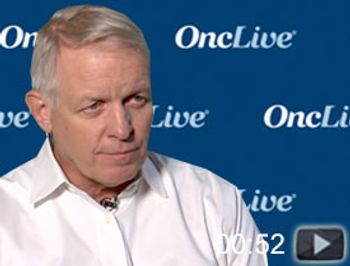
William J. Gradishar, MD, interim chief of Hematology and Oncology in the Department of Medicine, Betsy Bramsen Professorship of Breast Oncology, professor of Medicine, Hematology and Oncology, Northwestern University Feinberg School of Medicine, discusses the role of neratinib (Nerlynx) in the treatment of patients with HER2-positive breast cancer.

The FDA has granted a priority review to a new drug application for abemaciclib for use in combination with an aromatase inhibitor for the frontline treatment of women with hormone receptor-positive, HER2-negative advanced or metastatic breast cancer.
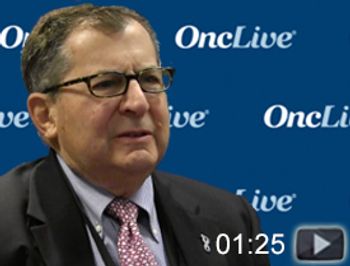
Hyman B. Muss, MD, professor of medicine, University of North Carolina-Chapel Hill School of Medicine, Breast Cancer Geriatric Oncology Program, director, geriatric oncology, UNC Lineberger Comprehensive Cancer Center, 2017 Giant of Cancer Care in Supportive/Palliative/Geriatric Care, discusses determining treatments for patients with HER2-positive breast cancer.
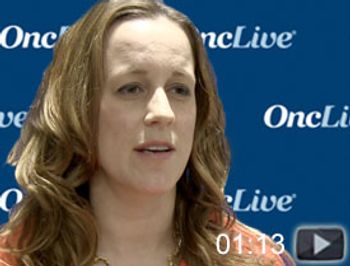
Erika P. Hamilton, MD, director of the Breast and Gynecologic Research Program at Sarah Cannon Research Institute, discusses how neratinib (Nerlynx) targets HER2-positive breast cancer.
